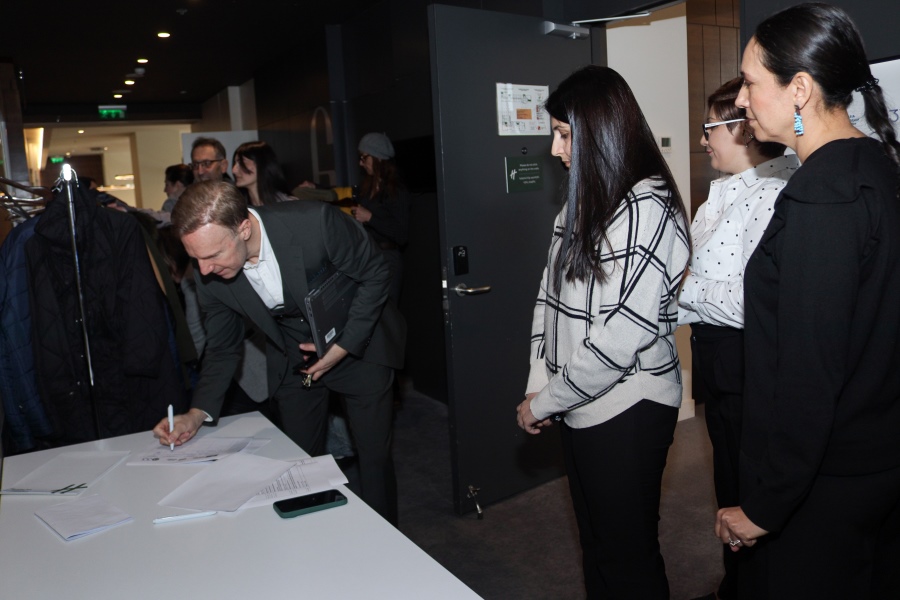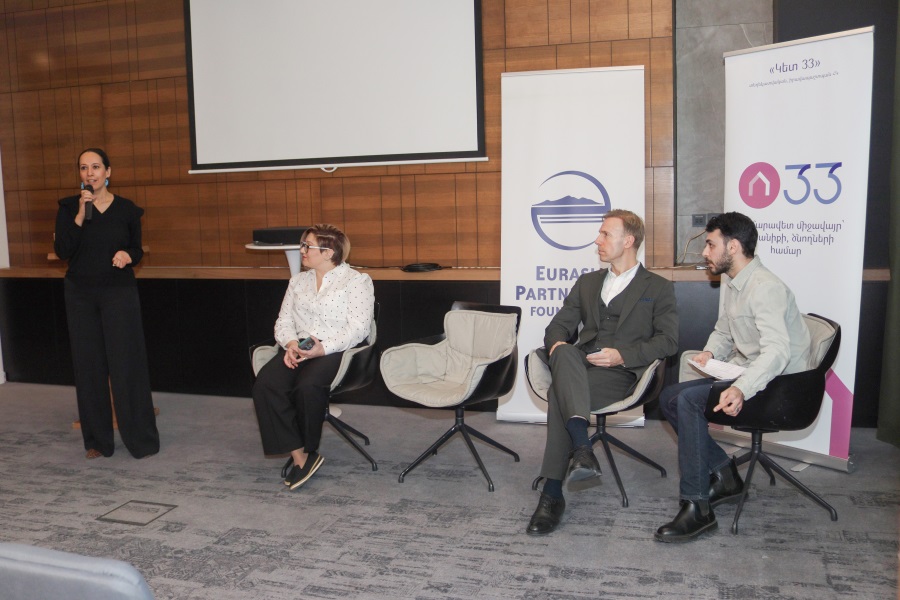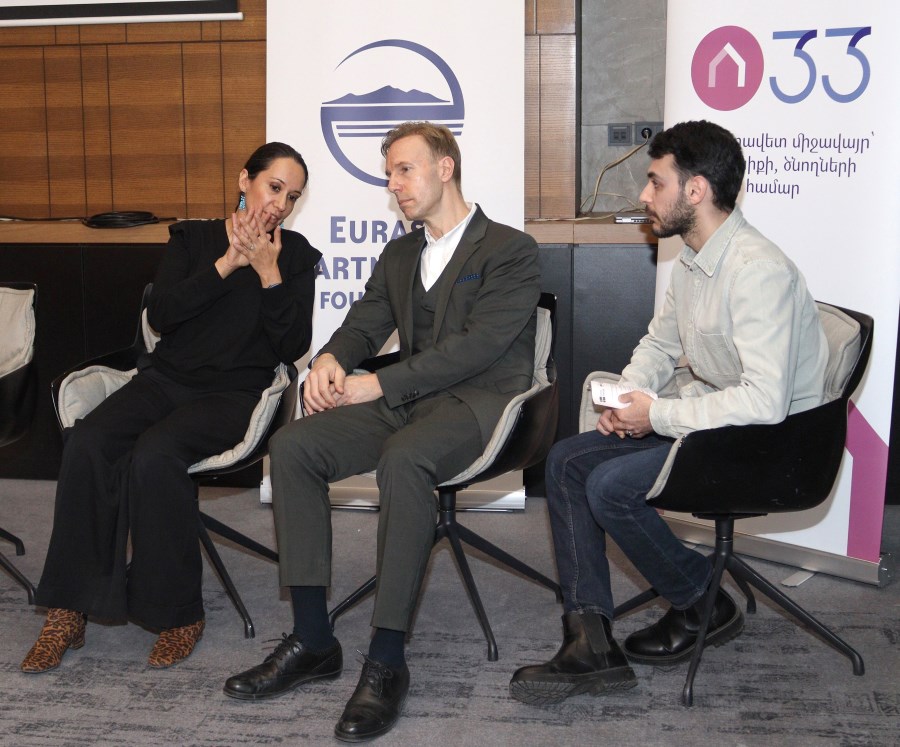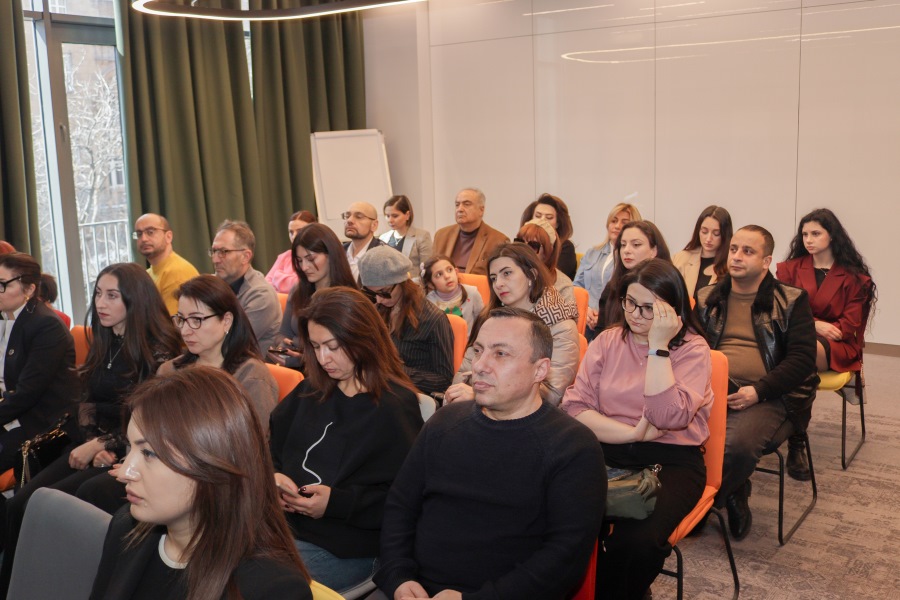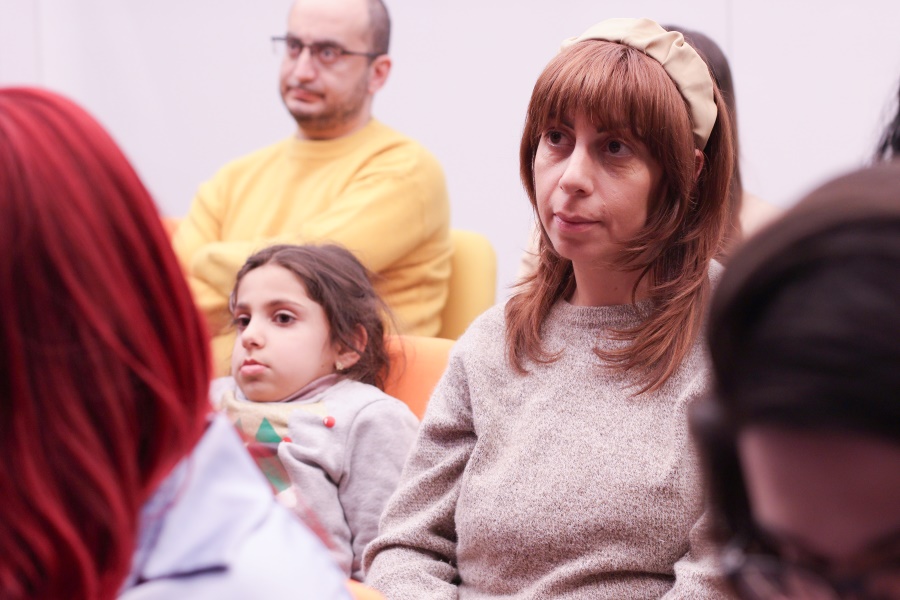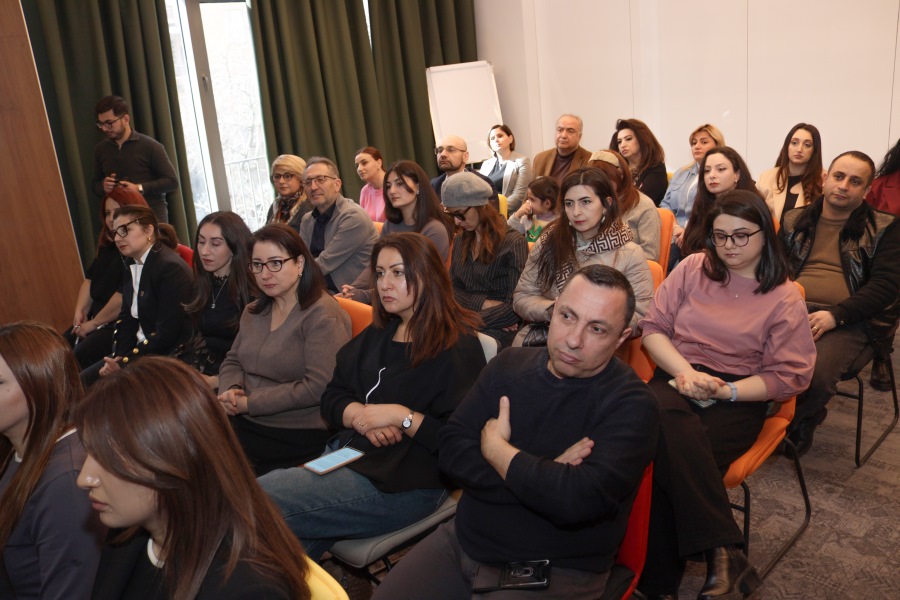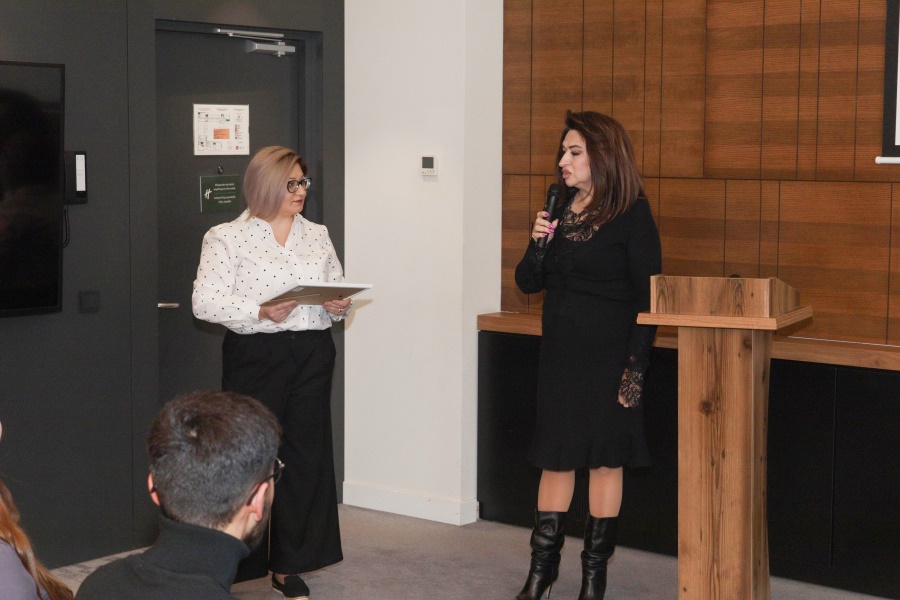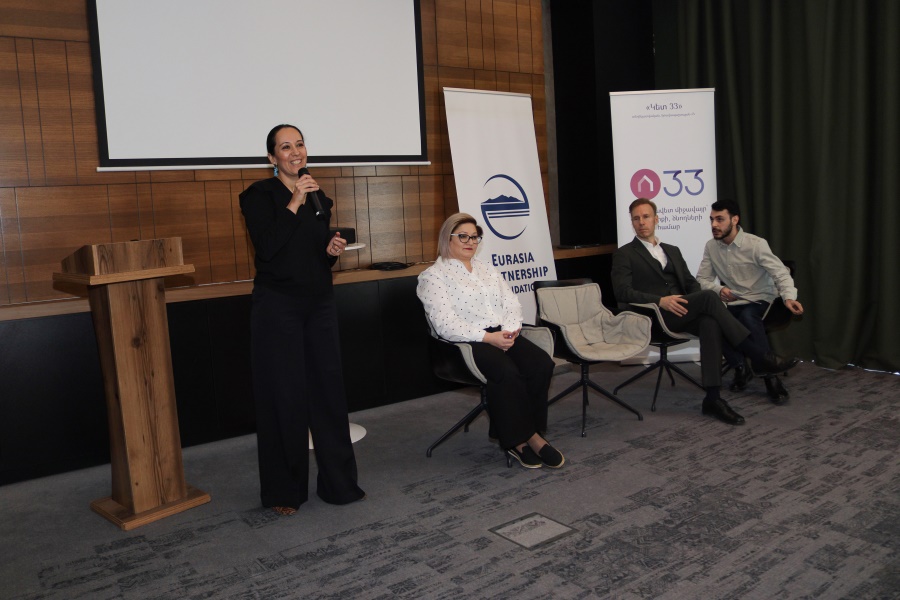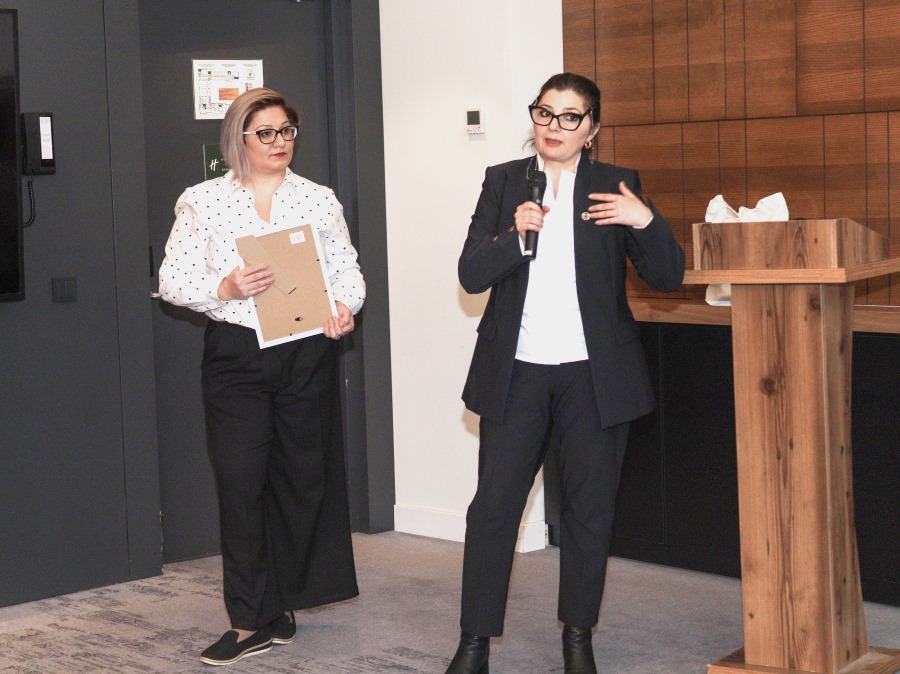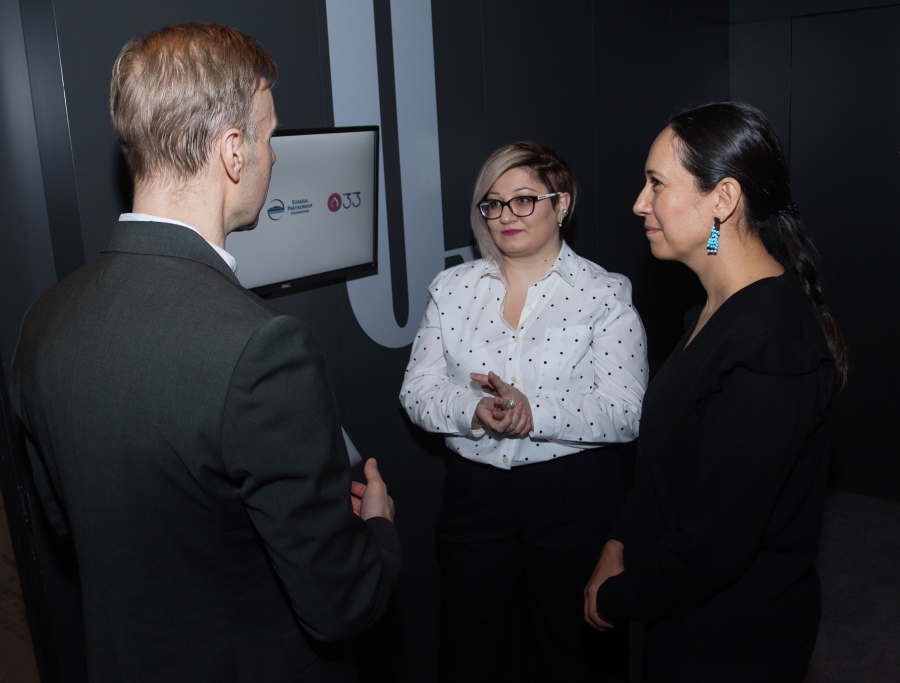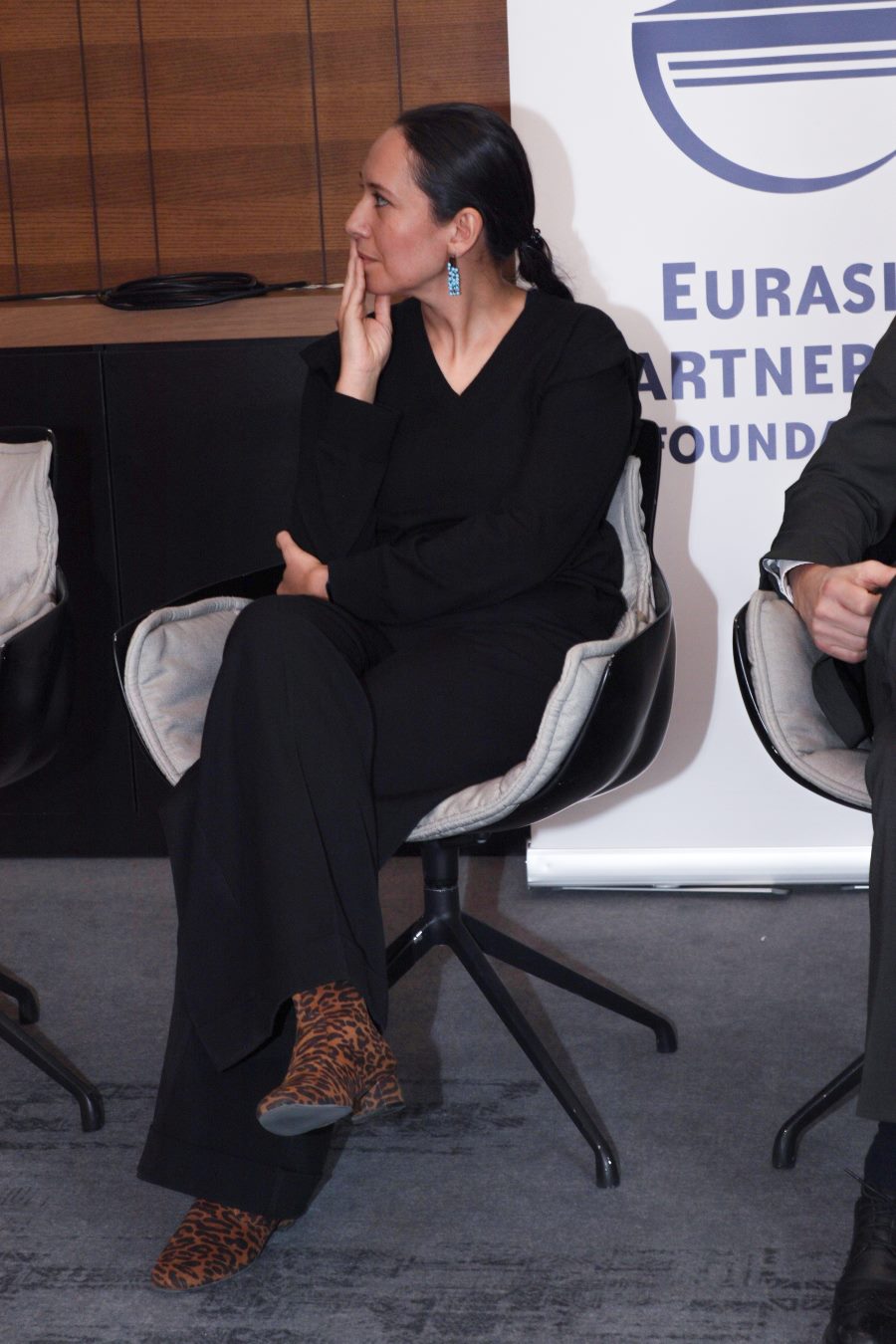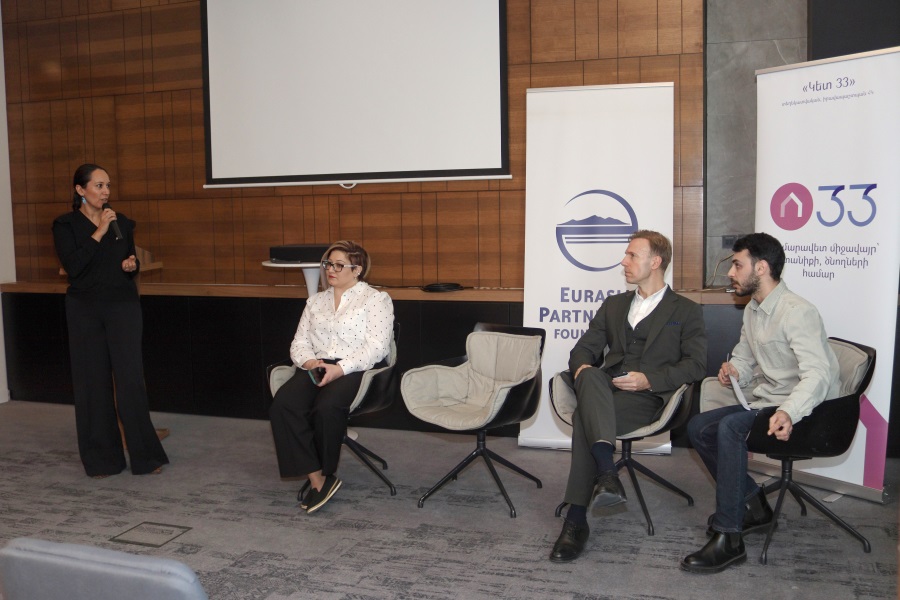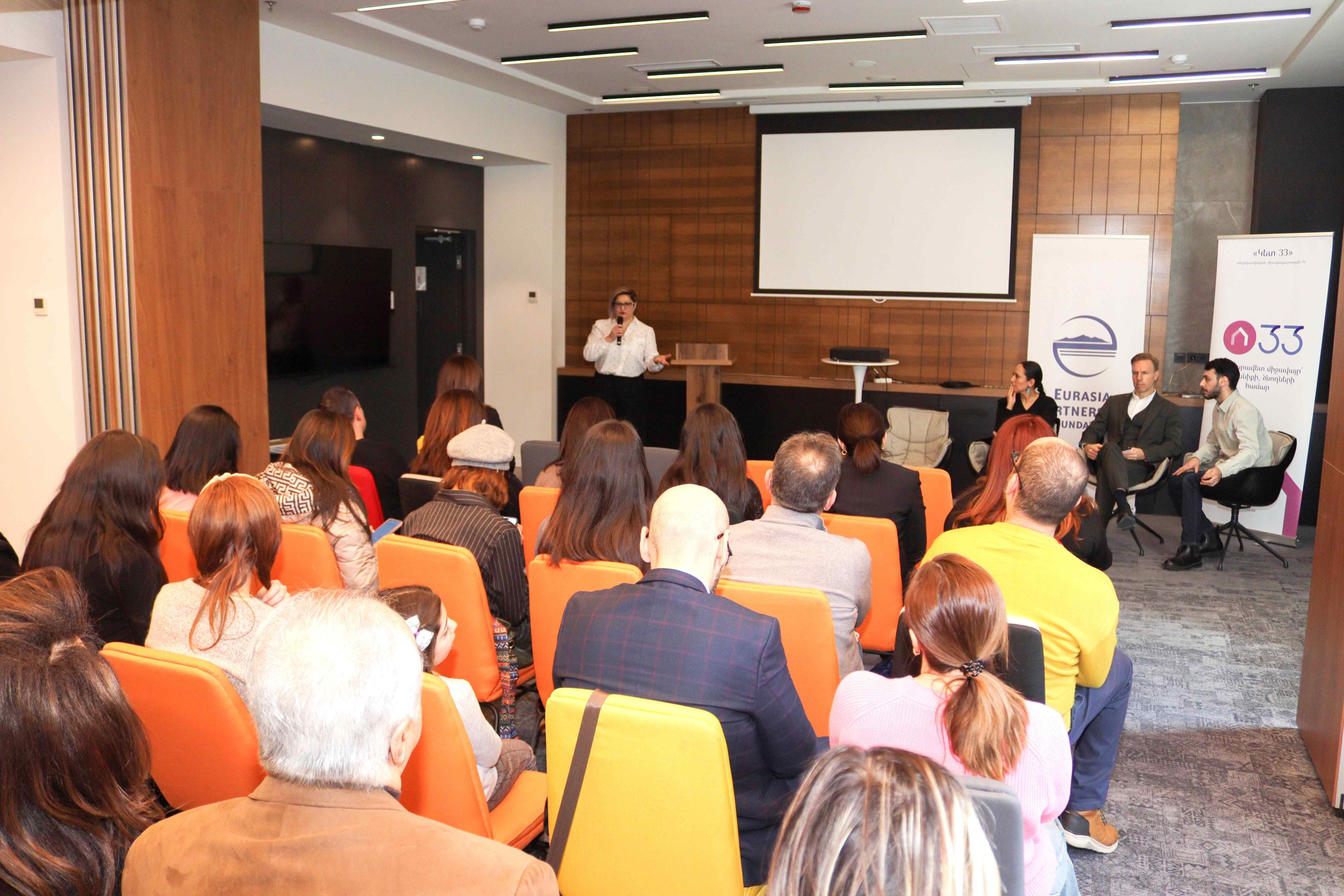“Dignified Motherhood: No to Obstetric Violence” Project Successfully Concluded
Just one or two years ago, there was a deep silence surrounding obstetric violence; many were unaware of the term, and both doctors and women hesitated to discuss the phenomenon. Today, journalistic articles are being written, and creative works are being created on the topic.
On February 26, the activities of the “Dignified Motherhood: No to Obstetric Violence” project concluded. The project was implemented by the “Point 33” Information and Human Rights NGO within the framework of the “Expanding the Impact of Civil Society Development” program, supported by the Swedish Government through the Eurasia Partnership Foundation.
“Such taboo topics, sometimes difficult to explain, are not always prioritized by donors, nor are all willing to support civil society in their efforts,” said Izabella Sargsyan, Director of the Human Rights Program at the Eurasia Partnership Foundation, in her welcoming remarks, presenting the program supported by the Swedish Government.
The “Dignified Motherhood” journalism and creative materials competition was a key component of the “Dignified Motherhood: No to Obstetric Violence” program. Over 50 applications were submitted and evaluated by a jury.
In the creative works category, two grand prizes for short stories were awarded: Narine Galoyan for “A Birth Story” and Marine Kocharyan for “One Foot in the Grave,” presented by Klas Waldenström, Deputy Head of Mission and Head of the Development Cooperation Section at the Swedish Embassy in Armenia.
“I am very pleased to see the publications initiated through the project supported by the Swedish International Development Cooperation Agency. I also thank our partners who have addressed this highly important yet somewhat taboo topic in Armenia,” said Klas Waldenström.
The Armenian-American Wellness Center awarded a special prize to Marina Gevorgyan for her story “Dignified Motherhood: A Struggle for…” “For us, every topic related to women’s health is important. We highly value the work you are doing to ensure women are not subjected to any form of violence,” said Khachanush Hakobyan, Director of the center.
The UNFPA Armenia office awarded a special prize to journalist Mariam Sargsyan for her documentary film “The Last Artsakhtsis.” “The film touched us all; it was very impressive. It showcases the resilience and courage of women, the dedication of the ‘white army’ to their work during difficult times of war, blockade, lack of medicine, and food… Through Mariam Sargsyan, we want to honor all those women and doctors who endured those harsh conditions with dignity, inspiring us with hope that everything can be overcome,” said Narine Beglaryan, Program Coordinator for Sexual and Reproductive Health at the UNFPA Armenia office.
In the journalistic materials category, four encouragement prizes were awarded to Sona Martirosyan, Marianna Paytyan, Satenik Hayrapetyan, and Gayane Markosyan.
The second part of the event was dedicated to the qualitative study “Manifestations of Obstetric Violence in Armenia.”
“This is the first and so far the only study addressing Armenian realities. It confirmed that our suspicions about various manifestations of violations of the right to dignified motherhood are, unfortunately, a reality. This study should be highly prioritized by the state, leading to broader quantitative and qualitative research and the implementation of legislative and practical reforms,” said Astghik Karapetyan, President of “Point 33” NGO and Head of the “Dignified Motherhood: No to Obstetric Violence” program.
Lusine Kocharyan, a public health specialist and author of the study, presented the research, which was conducted in three major cities—Yerevan, Gyumri, and Vanadzor—involving 28 women who had given birth within the last three years and 10 doctors, including obstetrician-gynecologists. The study identified the following main manifestations of violence: neglect, violations of the right to informed consent, the presence of a third party or support person without the woman’s consent, normalization of pain, refusal of pain relief, and violations of the right to privacy and isolation.
Following the presentation of the study results, the identified issues and reform proposals were actively discussed. The event was attended by representatives from the National Assembly and the Government of Armenia, as well as international and local organizations, who expressed their readiness to collaborate on bringing positive changes to the midwifery sector.
